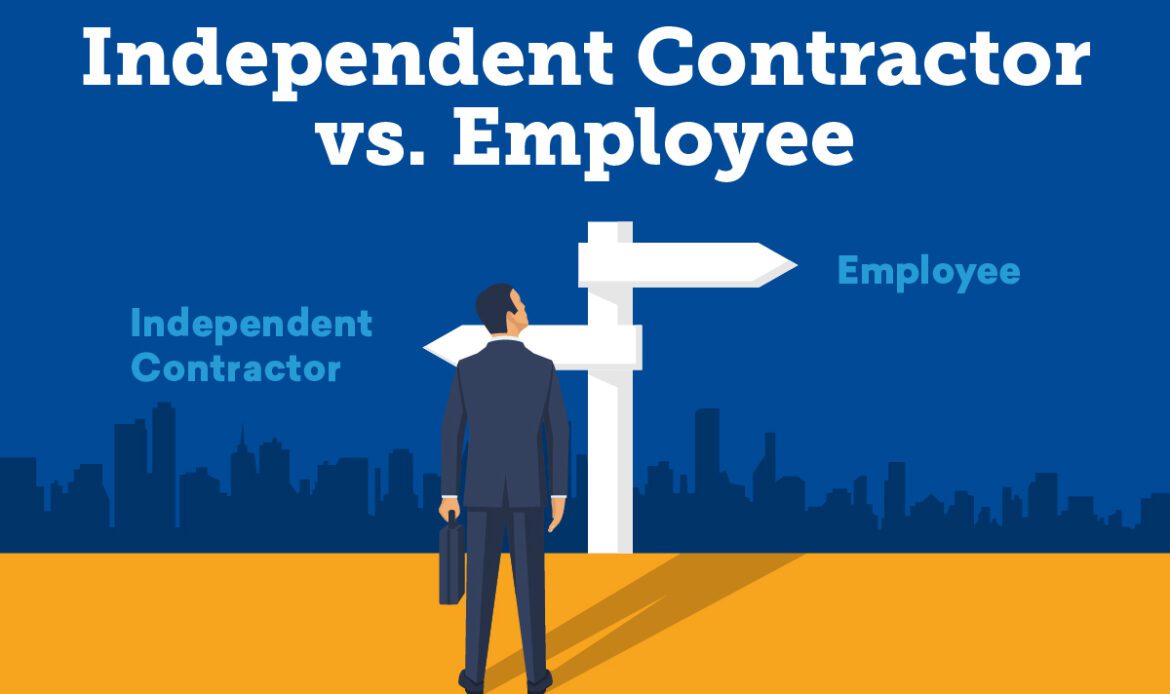In today’s dynamic workforce, businesses engage worker classifications of various types: employee or independent contractor. Accurately classifying workers as employees or independent contractors is crucial to avoid legal and financial repercussions. This blog post aims to clarify the distinctions between the two classifications and raise awareness of the risks associated with misclassification.

Employee or Independent Contractor: IRS Guidelines
According to the Internal Revenue Service (IRS), determining worker classification involves examining the entire relationship between the worker and the company. Key factors include behavioral control, financial aspects, and the type of relationship. Here’s what to consider:
- Behavioral Control:
- Does the company control or have the right to control how and when the worker performs their job?
- Financial Control:
- Are the business aspects of the worker’s job controlled by the payer? This includes payment methods, reimbursement of expenses, and provision of tools/supplies.
- Type of Relationship:
- Are there written contracts or employee benefits? Is the work performed integral to the business, and is there an expectation of continued work?
Worker Classification: Key Categories
When determining whether a team member is an employee or an independent contractor, consider these three main categories:
- Nature of the Relationship:
- Employee: Employers have significant control over how, when, and where work is performed.
- Independent Contractor: Contractors maintain autonomy over the methods and means of performing work.
- Tax Implications:
- Employee: Employers withhold taxes, and employees are eligible for various tax benefits.
- Independent Contractor: Contractors handle their own taxes, including self-employment tax.
- Benefits and Protections:
- Employee: Employees receive benefits like health insurance, retirement plans, and are protected by labor laws.
- Independent Contractor: Contractors do not receive benefits and are not covered by labor laws protecting employees.
Dangers of Misclassification
Misclassifying workers can lead to severe consequences:
- Legal Consequences: Government agencies monitor misclassification closely, leading to potential legal challenges and penalties.
- Financial Ramifications: Employers may face back taxes, fines, and legal fees. Workers may pursue legal action for unpaid wages and benefits.
- Impact on Morale and Productivity: Misclassification can affect employee morale and productivity, leading to disengagement.
- Unintended Liabilities: Employers may expose themselves to liabilities, such as lack of workers’ compensation coverage for misclassified workers.
Growth of Independent Contracts
The gig economy, characterized by short-term, freelance, or contract work, has experienced exponential growth in recent years. Technological advancements and shifting workforce preferences have fueled this expansion, as platforms like Uber, Airbnb, and Upwork offer opportunities for individuals to work flexibly and autonomously. The allure of independence, flexibility, and potential for higher earnings has attracted a diverse pool of workers, including freelancers, part-time workers, and those seeking supplemental income. This trend is not limited to specific industries; instead, it permeates various sectors, from transportation and hospitality to marketing and IT services, reshaping traditional employment models and challenging conventional notions of work.
Gig employers beware
While the gig economy offers numerous benefits for both workers and businesses, it also presents unique challenges and concerns. For workers, the lack of job security, benefits, and legal protections often associated with traditional employment can lead to financial instability and uncertainty. Additionally, the gig economy’s reliance on technology and algorithms for job allocation raises questions about fair pay, worker rights, and algorithmic biases. On the business side, navigating legal and regulatory complexities, such as worker classification and labor standards, poses challenges for companies operating in this space. Despite these challenges, the gig economy’s continued growth underscores its significance in shaping the future of work and necessitates ongoing dialogue and adaptation to ensure fair and sustainable outcomes for all stakeholders involved.
Courts of law continue to face cases on whether gig workers are employees or independent contractors. Uber, Lyft, Grubhub are just a few companies whose business model relies on independent contractors but who have faced lawsuits claiming misclassification.

Conclusion
Navigating employee and independent contractor classifications is crucial for both employers and workers. Accurate classification ensures legal compliance and contributes to a healthy work environment. Employers should seek professional advice and stay informed about labor laws to avoid the pitfalls of misclassification.
